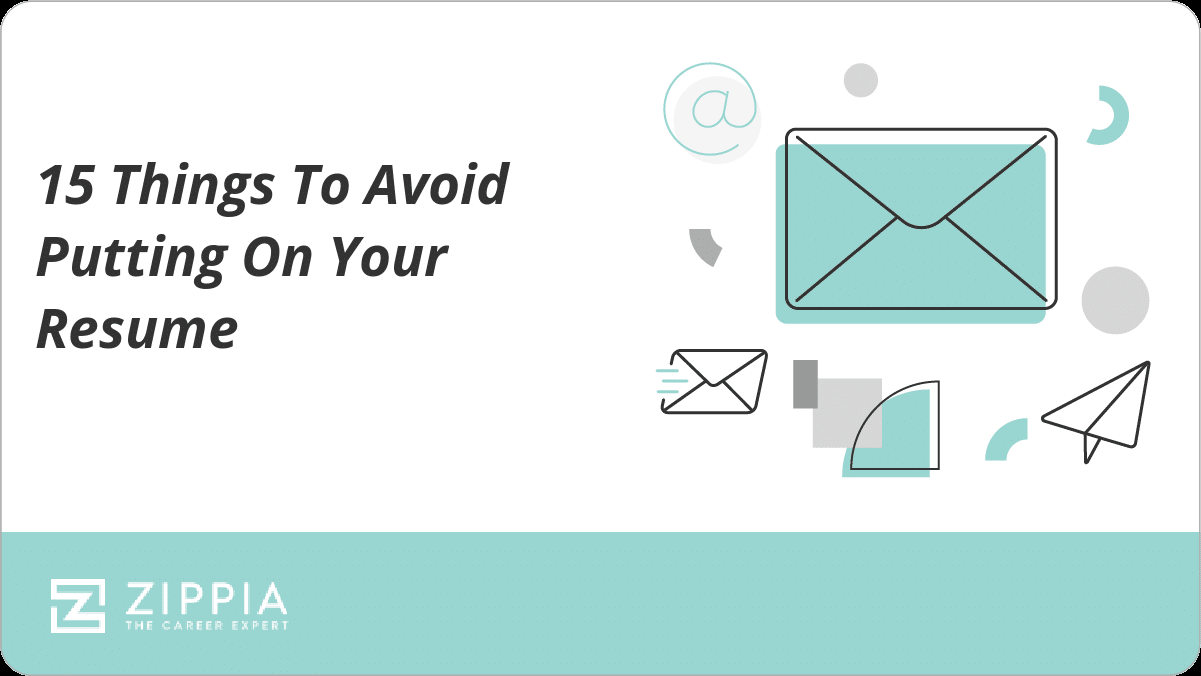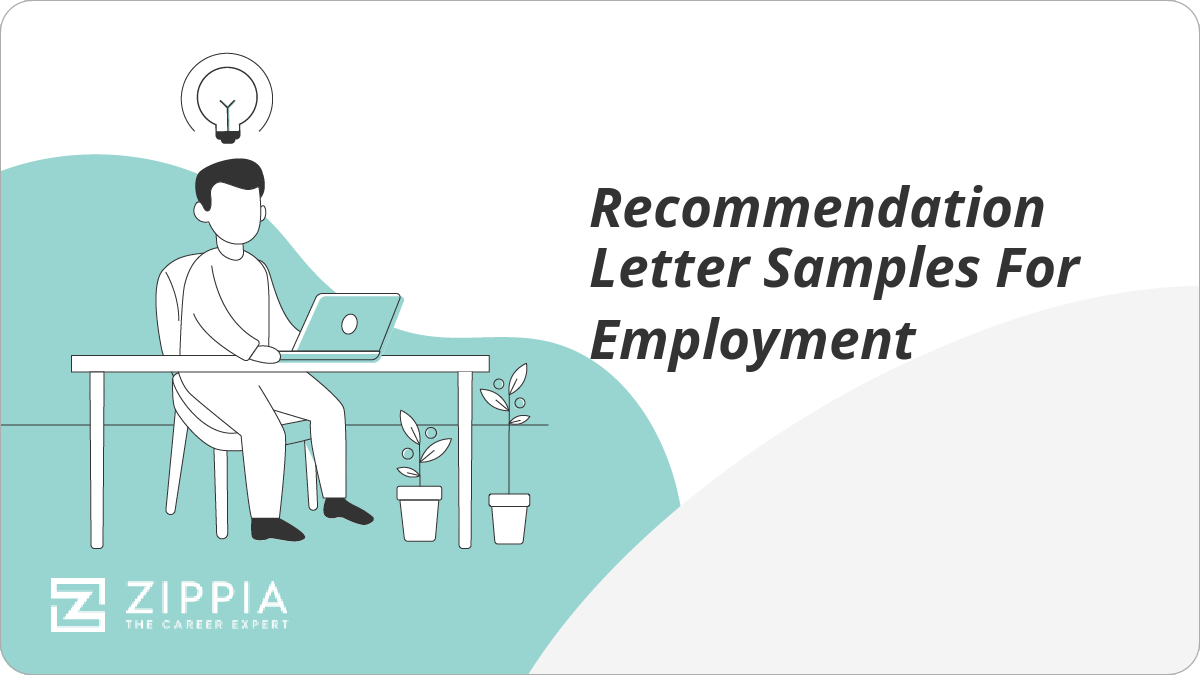- How To Write A Resume
- Resume Examples
- Resume Tips
- Resume Tips
- Best Resume Writing Services
- Things To Avoid On A Resume
- Resume Paper To Use
- What To Include In A Resume
- How To Write A Bio
- How To Write A Personal Statement
- Lied on Your Resume?
- Resume PDF
- Avoid Age Discrimination
- Words and Phrases You Shouldn't Include in Your Resume
- How Many Skills Should You List On A Resume
- Send A Resume As A Pdf
- Resume Critique
- Make A Resume Stand Out
- Resume Spelling
- Resume Past Or Present Tense
- How To List Projects On A resume
- Best Resume Action Words
- How To Quantify Your Resume
- Resume Bullet Points
- Are Resume Writers Worth It
- How Many Jobs To List On Resume
- Resume Vs CV
You know that rush of excitement you feel when you find a job listing that perfectly fits everything you’re looking for? Something that could very well be your dream job? Well, for every job listing an employer posts, about a million other people get that same euphoric feeling.
Here are 15 things to avoid putting on your resume to help you stand out from the crowd.
Key Takeaways:
-
If you want to impress hiring managers within that window, you need to highlight your relevant experiences and qualifications so they can see that you’re an ideal candidate
-
Hiring managers look for reasons to screen out applicants to narrow down a list of people to interview so if you include the wrong information, you could sabotage your own job search.
-
Employers typically end up spending about 10 seconds or less glancing over your resume before they decide to toss it or not.

15 Things to Avoid Putting On Your Resume
Employers get tons of resumes for every job opening they post online. No one has enough time to thoroughly read through every single resume they receive, so employers typically end up spending about 10 seconds or less glancing over your resume before they decide if you go in the trash pile or not.
Here are 15 things to avoid putting on your resume to help you stand out.
-
Your age Employers want to know what strengths and qualifications you have that can help their company succeed, not how long you’ve been able to stay alive. Try to avoid including:
-
Professional experience that is more than 15 years old
-
A large, exact number of years of experience in a job area, (e.g., “Executive Assistant with more than 20 years of experience in…”
Providing information about your age invites age discrimination. Age bias works both ways — you don’t want an employer to throw your resume in the trash because they think you’re too young or too old.
-
-
Personal Details.There’s really no need for employers to know personal details about your life — in fact, it’s actually illegal for interviewers to ask you questions about:
-
Marital status
-
Race
-
Sexual orientation
-
Age or birth date
-
Citizenship
Other personal information that is unnecessary to put on your resume include stuff like:
-
Height or weight
-
Political affiliation
-
Unrelated hobbies or interests — Unless it’s related to the job you’re applying for, it’s a waste of space and time. And honestly, no one cares. Instead, include a section of your resume that goes into your skills that are relevant to the job.
Employers don’t need to know any personal information aside from your name, city, state, and a way to contact you. Including personal information is a good way to make yourself out to be a scrub, and just like TLC, no one wants a scrub — unless you happen to be a janitor.
-
-
Irrelevant or outdated work experiences.Don’t list every single job you’ve ever had on your resume. Only list jobs, graduations, or certifications that you’ve gotten in the last 10–15 years, unless an earlier job really shows off qualifications related to the job you’re applying for. When you start listing really old jobs, you lose the employer’s interest.
-
Everything on your resume should show employers that you’re the best person for the job. Leave out anything that doesn’t relate to the job you’re applying for, unless it would put gaps in your employment history. If you have a limited job history, try to only include slightly unrelated positions and demonstrate how they’ve prepared you for the job at hand.
-
If you spent a lot of time with one company and moved through a variety of positions over many years, consider condensing the earlier roles. Nobody really cares about your accomplishments as an intern if your most recent experience with the company is as its Vice President.
-
One space-saving trick is to simply label one work experience entry for the company, then give detailed bullet points for your most recent roles.
-
Then, simply put your job title and the dates for the earlier roles, with no description. That way, it’s there for applicant tracking systems and hiring managers to see and account for, without wasting space on unnecessary details.
-
-
Inconsistent formatting. Your resume’s format is just as important as its content. Stick to a format that makes it easy for employers to skim through and easily find your experience, skills, and career goals. Once you find a format that works for you, stick with it throughout the rest of your resume. Here are some formatting mistakes to avoid:
-
Unnecessary stuff. Think headers, footers, tables, images, or charts. These fancy embeddings, although beautiful, are distracting. Keep it simple. Not only are they visually distracting for human readers, but they also might fail to pass muster with applicant tracking systems.
Some ATS can’t even read headers (where you probably put your contact information) — these resumes are thrown away before they reach a hiring manager, simply because of unpassable formatting.
-
Outdated fonts or fancy fonts. You want your resume to look sleek and easy to read. Curly-tailed fonts might seem to be a classy choice, but they’re not the easiest to skim. People have certain expectations for professional documents like resumes — in most cases, it’s best to play into those expectations rather than try to reinvent the wheel.
-
Long paragraphs without bullets. Employers might glance over sections of your resume and overlook your qualifications if your paragraphs are too long. If a single bullet point takes up more than one line, it’s probably too long.
Academic roles, research positions, and executive jobs may require a bit more explanation, but for most job applicants, stick to a handful of bullet points for each job entry.
-
-
Salary information. Don’t address your desired salary in your resume, unless the employer specifically asks. Salary is a topic that you will discuss with employers later on if you make it to the interview process or if you’re offered the job.
Your resume is meant to show off why you deserve the job; the topic of salary will come up later on.
Including your current salary or the salaries you’ve had at past jobs on your resume is just plain tacky, and hiring managers will probably scoff before tossing your resume into the garbage. Tact and common sense are just as important as hard skills when it comes to hiring decisions.
-
Typos, errors, goofs of all sorts. Make sure your resume is free of all goofs like typos, misspellings, grammatical mistakes, or factual errors. That’s just embarrassing.
-
Your resume is the first impression employers will get of your writing skills and how close you pay attention to detail. Don’t set yourself up for disappointment.
-
Use editing software to check for obvious errors. After that, read your resume from bottom to top to give yourself a new perspective — you’d be surprised how easy it is to miss the same mistake after reading the same document ten times.
-
Use editing software to check for obvious errors. After that, read your resume from bottom to top to give yourself a new perspective — you’d be surprised how easy it is to miss the same mistake after reading the same document ten times.
-
Finally, we recommend having a trusted confidante look over your resume. They may catch mistakes that you missed or can tell you that they’re confused by a certain element that you thought made perfect sense. A second set of eyes is truly invaluable.
-
-
Blatant lies and opinions.Don’t lie about past experiences or accomplishments. If you don’t have all of the qualifications listed in the job description, talk about what you can offer instead of making stuff up.
Employers want you to list facts, not opinions. Phrases like “excellent communicator” or “highly motivated” are opinions of yourself — they’ll decide if you are these things if they decide to interview you.
Instead, look for places in your resume where you can showcase these soft skills without simply saying you have them. For instance, talk about how your weekly meetings resulted in greater productivity if you want to make yourself out be an excellent communicator, or talk about how you regularly exceeded metrics if you want to highlight how motivated you were.
-
References.If employers want to speak to your references, they’ll ask. It’s generally assumed that someone applying for a job will have a list of references available. Including a section about them on your resume is a waste of prime resume real estate.
You can use a separate document to list your references and provide them when asked to by an employer.
-
Objectives. Instead of writing a resume objective that says what you hope to gain from a job, write a resume summary statement that highlights what you can offer the employer and their company.
Only provide an objective if you’re in a unique situation, such as recently graduating or changing industries. Even then, a resume summary statement is usually superior to an objective.
A resume summary statement makes it plain that you already possess the necessary skills and experience to get the job done, while an objective basically just states that you’d like a job.
-
Unnecessary words, company jargon, or annoying buzzwords.
-
Unnecessary words. Using the words “phone number” or “email address” to label your phone number or email address is unnecessary — those things are self-explanatory. Avoid using empty language like “outstanding” or “interesting.” Every word on your resume should be a specific description of your skills or accomplishments.
-
Company-specific jargon. Companies often have their own internal names for things like customized software, technologies, and processes that are only known within that organization and not by those who work outside of it. Be sure to exclude terms on your resume that are known only to one specific organization.
-
Annoying buzzwords. Avoid using buzzwords or phrases like “synergy,” “outside-the-box,” “people-pleaser,” “go-getter,” etc. These terms are pretty meaningless. Employers prefer to see terms like “achieved,” “launched,” “resolved,” etc. — but only if they’re used in moderation or can be backed up.
-
-
Anything negative.Your resume is a professional document that is meant to promote you as a candidate. Everything on your resume should be positive, so don’t include any negative experiences or try to explain them. There’s also no need to list why you left a position on your resume. If an employer is interested, they’ll ask.
Try not to mention things that you haven’t yet done or accomplished, and instead focus on what you’ve already done or are in the process of achieving (e.g., if you didn’t graduate college, list the dates you attended instead of mentioning that you dropped out).
-
Lists of tasks or duties without results.Your resume should do more than just list what jobs you’ve had; it should show off the results of what you’ve accomplished and what skills you used to achieve results.
Employers care about results, so show them. Instead of just saying that you “organized the company’s filing system,” say something along the lines of “Increased team productivity by 30% by organizing the company’s filing system.
If you’re having trouble quantifying your accomplishments, think of your former jobs’ tasks in these terms:
-
Frequency. Consider how often you did something. For example, “answered 10 customer queries each day” or “wrote 5 newsletters each month.”
-
Range. If your duties were dynamic, it’s useful to give a range. For example, “managed a team of 4-9 contractors” or “stocked a warehouse with 3-5 tons of goods every day.”
-
Scale. Think numbers and cash. For example, “managed 5+ customer accounts worth $1.2M+” or “drove 21,000 new downloads each quarter.”
-
Increase. Hiring managers and recruiters love measurable results. For example, “boosted customer engagement by 17%” or “drove sales by 13% each quarter.”
-
-
Names and information about current or previous employers.T his is just silly Don’t include your current employer’s name on your resume unless you’re okay with a potential employer contacting them.
Unless your current employers are aware of your job search, if potential employers call you at your current place of work, you could potentially be fired or charged with theft of services. Yikes. Just leave the business info off.
Leave off the names and contact information for former employers. Instead, include them on your list of references, and make sure to check in with them before listing their information.
-
Time off and short-term employment. Don’t include the time you took off to travel or raise a family on your resume. I’m sure it was very personally fulfilling, but employers don’t care.
Don’t list a job on your resume if you only held the position for a short amount of time, and especially don’t include ones that you were fired from or hated. It’s going to be hard to explain what you gained from a job you had for a month that made you want to tear your hair out.
-
Unprofessional email addresses and social media URLs. If you’re currently using your old school email address like [email protected] or [email protected], it’s time to make a more professional one.
-
Don’t include links to your opinionated blogs, wedding-centered Pinterest pages, or your Instagram account dedicated to detailing the life of your dog. This is just a waste of space and a good way to land yourself in the trash pile.
-
Unless, of course, you’re applying for a role in social media — in that case, your excellent Instagram might be evidence of your industry chops.
-
On the other hand, feel free to include relevant URLs, such as your LinkedIn account or links to a professional online portfolio. Again, anything you include on your resume should be directly related to the job you’re applying for.
-
Other Things to Leave Out of Your Resume
-
Photographs. Unless you’re going for a modeling or acting job, this is just awkward and tacky. Employers prefer that you don’t include photographs because they don’t want to be accused of discrimination.
-
GPA. Once you’re out of school, grades don’t matter so much. Unless you’re a recent college graduate and your GPA was 3.8 or higher, leave it out.
-
High school. Only include your high school diploma if it’s your highest degree or if you’re still early in your college career. Once you graduate from university, it’s time to get rid of it.
-
Criminal record. If you have a criminal record, it’s probably a good idea to leave it out. If you get hired, the company may search your background record, but it doesn’t need to show up on your resume. It the topic comes up once you’re being considered for a job, you can discuss it with the employers.
-
Personal pronouns. Don’t use words like “I,” “me,” “my,” etc. It goes without saying that everything on your resume is about you. Let’s try not to look like a rookie.
- How To Write A Resume
- Resume Examples
- Resume Tips
- Resume Tips
- Best Resume Writing Services
- Things To Avoid On A Resume
- Resume Paper To Use
- What To Include In A Resume
- How To Write A Bio
- How To Write A Personal Statement
- Lied on Your Resume?
- Resume PDF
- Avoid Age Discrimination
- Words and Phrases You Shouldn't Include in Your Resume
- How Many Skills Should You List On A Resume
- Send A Resume As A Pdf
- Resume Critique
- Make A Resume Stand Out
- Resume Spelling
- Resume Past Or Present Tense
- How To List Projects On A resume
- Best Resume Action Words
- How To Quantify Your Resume
- Resume Bullet Points
- Are Resume Writers Worth It
- How Many Jobs To List On Resume
- Resume Vs CV





